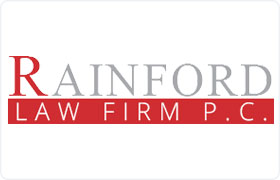Mcdonough Credit & Debt Lawyer, Georgia
Sponsored Law Firm
-
 x
x

Click For More Info:
-
Rainford Law Firm P.C.
4920 N Henry Blvd. Stockbridge, GA 30281» view mapBankruptcy & Debt Law Experienced Bankruptcy & Debt Lawyer
Regardless of your situation, Attorney Chalcia Rainford is more than happy to guide you in the direction that will be most beneficial for you!
800-632-9140
Robert Anthony Quinn
Real Estate, Business & Trade, Credit & Debt, Property & Casualty
Status: In Good Standing
 Chalcia Rainford Stockbridge, GA
Chalcia Rainford Stockbridge, GA AboutRainford Law Firm P.C.
AboutRainford Law Firm P.C. Practice AreasExpertise
Practice AreasExpertise
